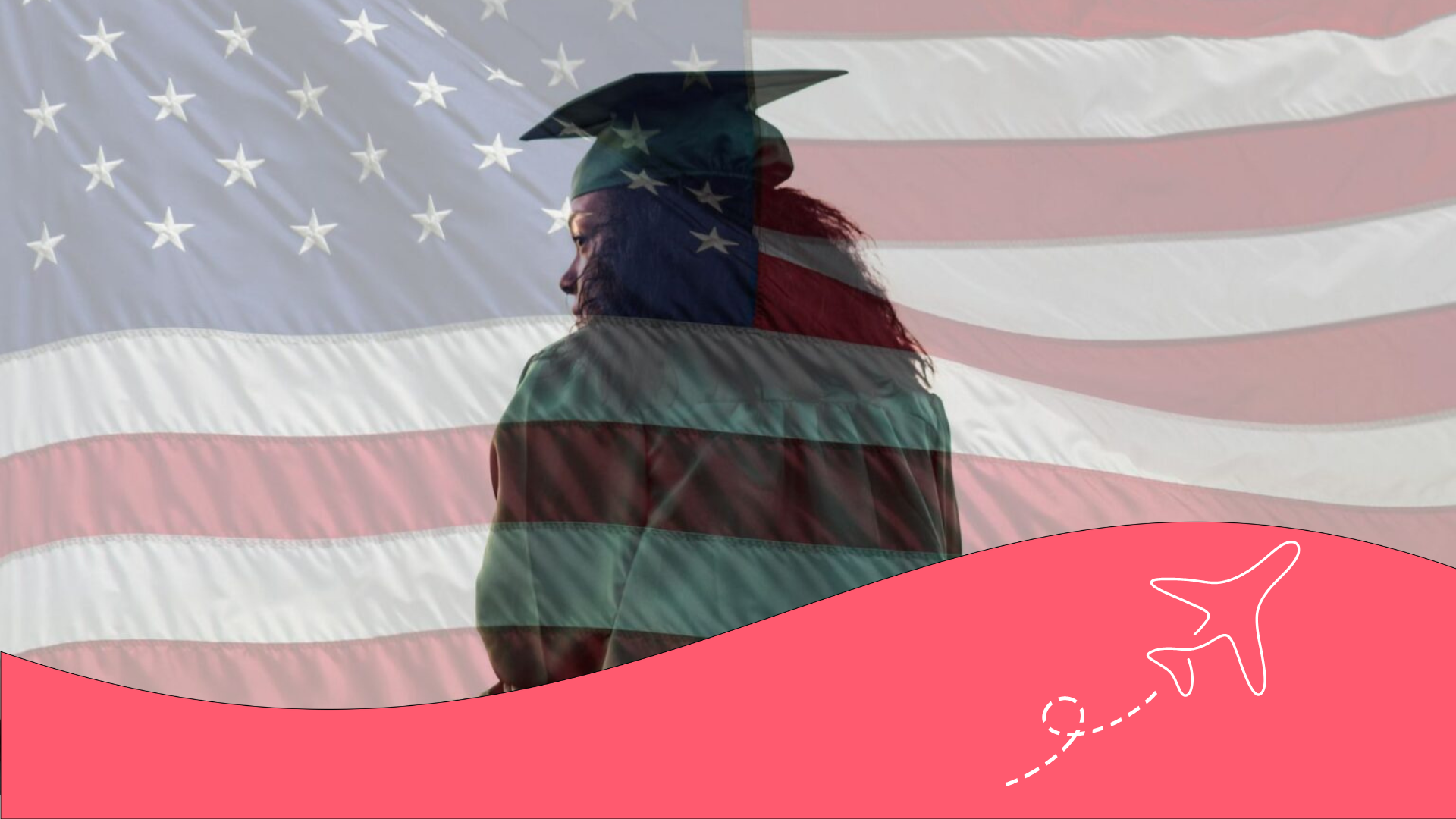Complete guide: How to study French in Canada?
In this article, learn how to study French in Canada through its costs, schools, and recommended agencies.
Studying French in Canada offers a unique chance to immerse yourself in an environment that makes learning the language both natural and effective. Improving your French can open doors in your personal and professional life. Cities such as Montreal, Quebec, and Ottawa are among the best places to study French in Canada and experience its culture up close.
In this article, we’ll cover key topics like course costs, scholarship opportunities, some of the best schools to study at, and recommended agencies to help you make the most of your study experience in Canada.
How much does it cost to study French in Canada?
Since the cost of a French course in Canada can vary depending on the city, course length, and availability, here’s an estimate of the main expenses you can expect during your stay:
| Concept | Approximate price |
| Intensive course (4 weeks) | $860–1,790 |
| Semi-intensive course (4 weeks) | $570–1,070 |
| Materials and registration | $35-140 |
| Accommodation in student residence (monthly) | $570–1,070 |
| Homestay (monthly, with meals) | $640–920 |
| Food expenses (monthly) | $215-430 |
| Public transportation (monthly) | $65-85 |
If you’d like to learn more about living expenses in Canada, check out our guide to the cost of living in the country.
Stay connected in Canada
Getting around and exploring Canada is much easier with your own eSIM, which lets you stay connected at all times and manage your day-to-day activities online, whether you are checking directions, booking services, or staying in touch. The Holafly eSIM for Canada is a great option for that.
Important: If you are a frequent traveler and want to stay connected without worrying about expensive roaming or looking for a new SIM at every destination, Holafly’s subscription plans are for you. With a single eSIM, enjoy internet in more than 170 countries for a fixed price and no surprises on your bill. Travel without limits and connect easily and securely! 🚀🌍

Where can I find scholarships to study French in Canada?
Some of the scholarships you can apply for if you are on a tight budget are as follows:
- Quebec Government Scholarship: Offered to international students who wish to learn French in the province. Covers part of the cost of the course.
- Canadian Government Mobility Scholarships: Designed for those studying in Canada for short periods.
- University and college scholarships: Some institutions, such as McGill, the University of Montreal, and Laval, offer financial aid for language students.
Best schools to study French in Canada
There are many options for studying French in Canada. Here are some of the best schools according to your needs:
BLI Montreal – With accommodation
Located in downtown Montreal, BLI (Bouchereau Lingua International) is one of the most renowned schools for teaching French.
- Courses: Intensive, semi-intensive, and personalized. Levels from basic to advanced.
- Accommodation: Student residences, shared apartments, and homestays with local families.
- Price: From $860 per month.

École Québec Monde – No accommodation
Located in Quebec City, this school offers an immersive approach to language learning.
- Courses: General French, Business French, and exam preparation.
- Accommodation: Not included, but they offer advice on finding lodging.
- Price: From $715 per month.
ILSC Montreal – Specializing in adults
Perfect for those looking for French training with a professional or academic focus.
- Courses: General French, exam preparation, and immersion programs.
- Accommodation: Student residence or host families.
- Price: From $1,070 per month.
How can I study French in Canada and work at the same time?
If you’re planning to study French in Canada and would like to work at the same time to help cover your expenses or gain experience, it’s important to understand the rules and opportunities available for international students.
Is it possible to work while studying French in Canada?
Whether you can work while studying depends on the course and the type of permit you have. Most language courses in English or French do not allow work, unless they are included in a larger academic program.
To work legally while studying in Canada, you must meet these requirements:
- Be enrolled in a higher education program at an officially recognized public or private institution.
- Have a valid study permit that includes authorization to work.
- The course must be longer than six months and lead to a diploma, certificate, or academic degree.
French courses at private language schools that are not part of a larger academic program do not grant the right to work.
How many hours can a student work in Canada?
Since 2022, students with a study permit that allows them to work can do so:
- Up to 20 hours per week during the school term.
- Full-time (40 hours per week) during official holidays.
However, between November 2022 and April 2024, Canada allowed some students to work more than 20 hours a week. It is always a good idea to check the latest rules on the official Immigration, Refugees and Citizenship Canada (IRCC) website.
What kind of jobs can students do?
Students often find employment in sectors such as:
- Hospitality and tourism: Hotels, cafés, restaurants, and bars.
- Retail and customer service: Stores, supermarkets, and shopping malls.
- Campus jobs: Many universities and colleges offer employment within their facilities.
- Freelance and remote work: Design, writing, digital marketing, or online tutoring.
Best seasons to study French in Canada
Choosing the perfect season to study French in Canada will depend on your lifestyle and climate preferences.
Spring (March–June)
- Warmer temperatures after winter.
- Fewer tourists and lower accommodation costs.
- Many universities and language schools offer short courses during these months.
Summer (June–September)
- The best season for cultural events and outdoor activities.
- Intensive French courses, perfect for those looking for a quick course.
- More job opportunities in tourism and hospitality.

Fall (September–December)
- Start of the academic year at universities and colleges.
- Less demand for language courses, which can mean smaller classes and personalized attention.
- Opportunity to work at fall events and festivals.
Winter (December–March)
- The most affordable option for those looking to save on accommodation and flights.
- Requires adapting to the cold, especially in cities such as Quebec City or Montreal.
- Opportunity to enjoy a unique experience with winter sports and snow festivals.
Popular agencies for studying French in Canada
If you are looking for agencies to study French in Canada, consider options like EF Education First, ILAC, ESL Idiomas, Global Connection, GrowPro Experience, and EduCanada. These organizations offer language courses and immersion programs in several Canadian cities.
Here is a more detailed list of popular agencies and schools:
- EF Education First: They offer language programs in several Canadian cities, including Toronto and Vancouver, with a focus on language immersion and educational experiences.
- ILAC: Based in Toronto and Montreal, offering courses in French and other languages.
- ESL Languages: Helps students find French courses tailored to their needs in Canada.
- Global Connection: Offers total immersion programs in French in cities such as Montreal, Quebec, and Ottawa.
- GrowPro Experience: Offers French courses in Canada to help you speak French like a native.
- EduCanada: Offers study programs in Canada, including language courses and exchange programs.
- Alliance Française: Has several locations in Canada, including Toronto, Vancouver, Ottawa, and Montreal.
- Institut de Français du Canada (IFC): Offers French programs in several Canadian cities.
Frequently asked questions about studying French in Canada
If the course lasts less than six months, you can enter with an eTA or tourist visa. For longer programs, a study permit is required.
No, unless the French course is part of a larger academic program, such as a diploma or university degree.
The price varies depending on the city and school, but intensive courses can cost between $1,071-1,790 per month.
The best options are Montreal and Quebec City, where French is the main language.
The cost of living varies, but on average you will need between $930-1,790 per month to cover accommodation, food, and transportation.





 Language
Language 


















 No results found
No results found








